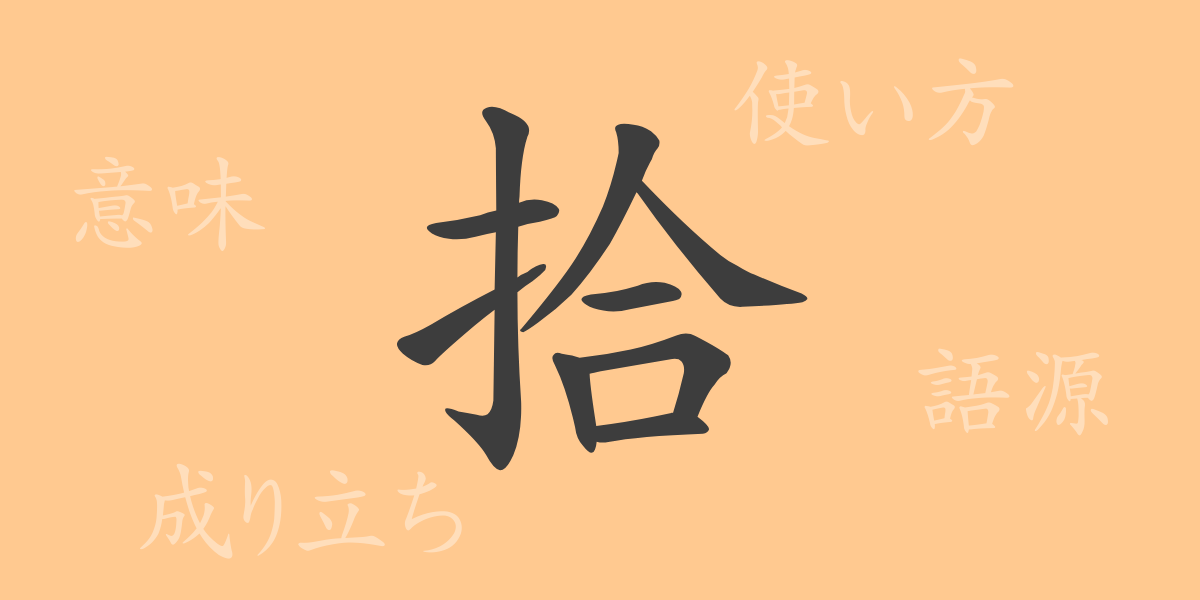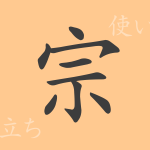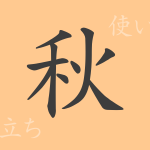The beauty of the Japanese language is reflected in its characters. Each kanji has a history, and its formation and meaning are deeply rooted in our daily lives. “拾(ひろう)” is one of the commonly used kanji in everyday life, and it conveys not just numerical value but also rich expressions and teachings. In this article, we will delve into the origins, usage, readings, and idioms involving “拾(ひろう)” to uncover its charm.
Origin of 拾(ひろう) (Etymology)
The kanji “拾(ひろう)” symbolizes the act of picking something up with one’s hand. Its origins can be traced back to ancient Chinese oracle bone script, depicting a hand scooping something off the ground. Over time, this character evolved into its current form, illustrating the dynamic history of kanji.
Meanings and Usage of 拾(ひろう)
The primary meaning of “拾(ひろう)” is “to pick up,” referring to the action of taking something from the ground with one’s hand. However, it is also used more broadly to mean “to find” or “to gather.” Additionally, due to its phonetic similarity to the number “十(じゅう)” (ten), “拾(ひろう)” can be used as a humble or polite substitute for “十(じゅう).”
Readings, Stroke Count, and Radical of 拾(ひろう)
Understanding the readings and structure of “拾(ひろう)” provides deeper insight into its use.
- Readings: The on’yomi (音読み) readings are “シュウ” and “ジュウ,” and the kun’yomi (訓読み) reading is “ひろう.”
- Stroke count: 拾(ひろう) has 9 strokes.
- Radical: The radical is 手(てへん), indicating the hand.
Idioms, Phrases, and Proverbs Using 拾(ひろう)
Various idioms and phrases incorporate “拾(ひろう),” used in many contexts in the Japanese language. Here are a few examples:
- 拾得(しゅうとく): The act of picking up something found or obtaining something unintentionally.
- 拾遺(しゅうい): Collecting things left behind or compiling the academic or cultural works left by predecessors.
- 落ちても拾う(おちてもひろう): To recover from failure or to be given another chance despite a mistake.
- 金拾う猿も木から落ちる(かねひろうさるもきからおちる): A proverb teaching that even the most skillful can make mistakes.
Conclusion on 拾(ひろう)
The kanji “拾(ひろう)” holds meanings beyond just representing a number, enabling rich expressions in the Japanese language. From its origins to its everyday usage and its presence in idioms and proverbs, “拾(ひろう)” continues to be actively used in language. Understanding the meanings behind each kanji enriches our appreciation of the depth of the Japanese language.

























